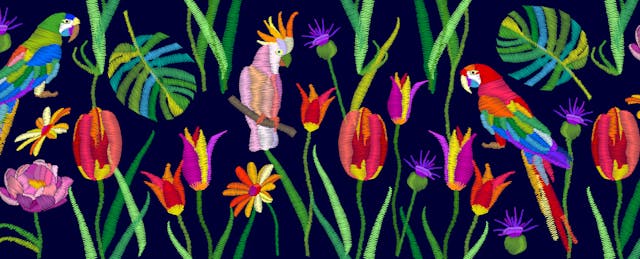When Kim Preshoff’s students watch some animated TED-Ed videos, they don’t know that she was the one who came up with the lessons and wrote the scripts until the credits roll.
The New York state-based high school environmental science teacher doesn’t like to make a big deal about it in front of her students, but when they find out, they’re usually in awe.
TED is best known for its videos showcasing its difficult-to-get-into talks from experts and creative thinkers. But the nonprofit also has an education arm with its own YouTube channel filled with animated explainer videos, generally about four to seven minutes long, on topics that may surprise you, such as the “most successful pirate of all time” and the “world’s most mysterious book.”
The organization’s YouTube channel started in 2012 as part of YouTube’s Channels Expansion initiative. Stephanie Lo, director of TED-Ed Programs, tells EdSurge the videos are geared toward people aged 13 to 21, but viewers fall into a broad age range. Currently, the channel has more than seven million subscribers and hundreds of videos, which together have racked up more than a billion views. Lo says the animations started out as an experiment to see if they resonated with learners, and they did. Personally, she thinks they help people see concepts broken-down.
Any educator can either suggest a topic she wants to see TED-Ed create a video on, or pitch a lesson herself, as Preshoff does. The core driver of TED-Ed’s content, Lo says, is the question of how to “best spark the curiosity of learners.” When the channel first began, Lo says there were a lot of science submissions. But lately, the organization has seen “spectacular interest” in history, literature and language. “I think it’s actually topic-agnostic.’
Preshoff’s videos focus on the environment, a subject she’s passionate about. She says a lot of times, she chooses topics to fill a need in her curriculum if she can’t find a good existing resource or video on the matter. Other times, it’s because she wants people to be better informed about a subject. She pitched her video on the importance of biodiversity when she realized a lot of people probably couldn’t define the term. Still other ideas simply go untold: not all of her pitches end up accepted.
“I teach environmental science, and I’ve watched a lot of changes,” Preshoff says. “I’m really hoping that I can reach people about the importance of—I know this is going to sound so idealistic—preserving the planet and making a difference.”
From start to finish, the process of conceiving and creating the videos is complicated and lengthy. Preshoff says it generally takes at least four months for a video to be released. First there’s the pitch, followed by a development meeting. Then comes what Preshoff calls the hardest part. She has to write an 800-900 word script that’s “simple and direct” and follows guidelines TED-Ed sends her. Among those guidelines? Think of the animations replacing some of her words—such as showing specific animals impacted by biodiversity instead of listing them by name. That’s not always easy, she says, because teachers think their words “are always super important.”
When she submits her script, TED-Ed takes a look and asks her where she got her resources. The organization does some fact-checking, and then engages a narrator and an animator to bring it to life. Preshoff says she sees parts of the animation throughout the process and she’s able to give her thoughts and ask for changes.
“When it gets back to you, it is an amazing piece of work, because what you expect and what you wrote is made so much better, and done so creatively,” she says, adding that the “beautiful piece of work” is completely a team effort.
Preshoff doesn’t get paid, nor does she expect to (although TED-Ed gives her and other educators who develop lessons gift cards). For her, it’s enough to help “make a difference in the world” and help other educators have something they can use in the classroom. “It feels like you're giving back.”
Take her video on the science of smog. The end of that video featured an ode to Preshoff’s teaching career and invited viewers to give her a shout-out in the comments. Preshoff says that simple act made her feel really appreciated.
“I’ve been teaching for 30 years, I can recall maybe 30 times that my kids have said, ‘thank you so much, we just love you,’” she says. “But to watch the comments from across the world come up on the bottom of my YouTube video, it was pretty astounding and pretty humbling.”


